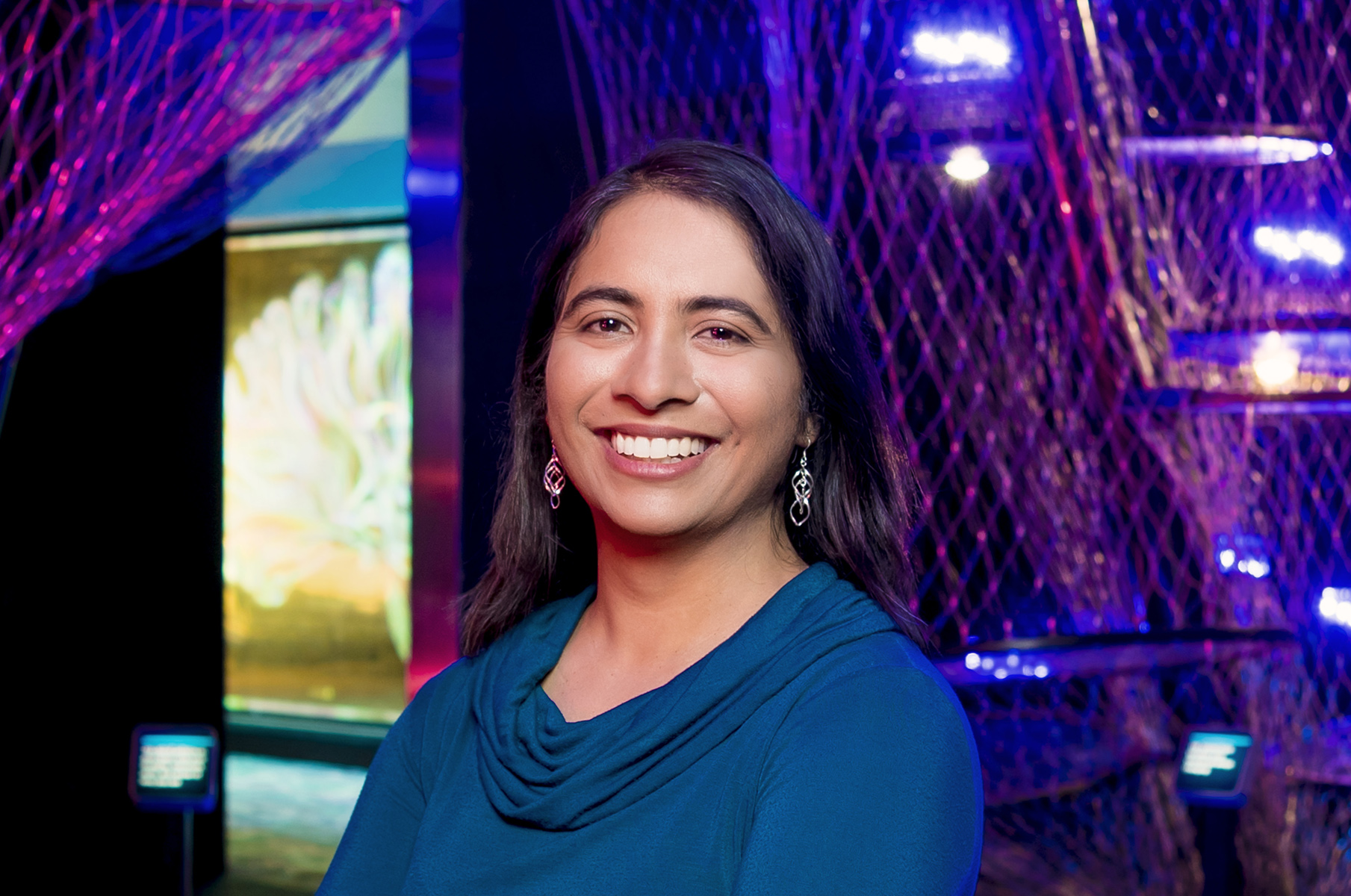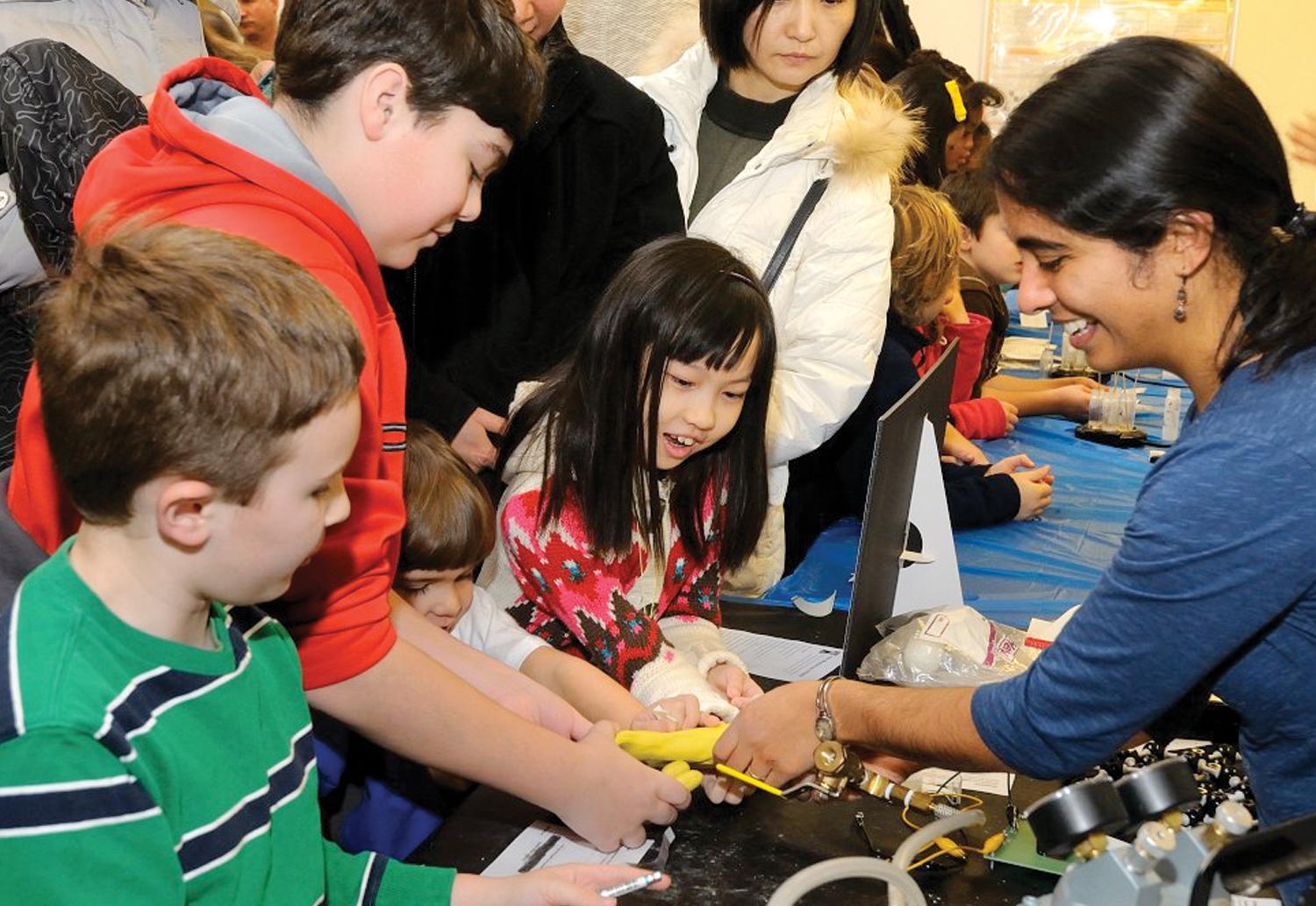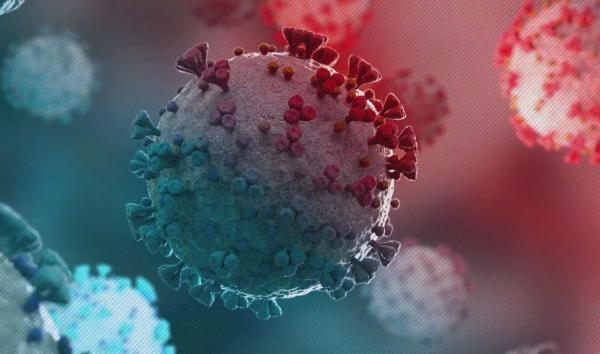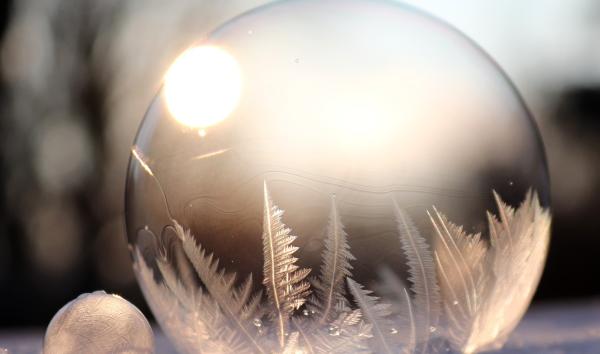Jayatri Das, Ph.D.

Jayatri Das, Ph.D.
As Chief Bioscientist at The Franklin Institute, Jayatri Das helps us understand ourselves. How do our brains work? How do our neighborhoods affect our health? How will new technologies change our future? As an awesome science communicator, she brings us all into the conversation!

Jayatri has led exhibit development of both Your Brain, a national award-winning exhibit about the neuroscience and psychology of the human brain, and SportsZone. She also leads The Franklin Institute’s programming initiatives about materials science, nanotechnology, synthetic biology and other areas of emerging science and their impact on our everyday lives.
Jayatri earned her Ph.D. in ecology and evolutionary biology from Princeton University and conducted postdoctoral research in biology at the University of Pennsylvania, investigating the biochemical processes that allow living things to adapt to different environments (and hunting for wild fruit flies from Florida to Canada along the way). Watch her Science Story about a moment of unexpected discovery!
Prior to joining The Franklin Institute, Jayatri held a Science and Technology Policy Fellowship at the Marian Koshland Science Museum of the National Academy of Sciences in Washington, DC. In 2016, she was honored with the American Alliance of Museums’ Nancy Hanks Award for Professional Excellence. Jayatri is an invited Fellow of the Center for Neuroscience & Society at the University of Pennsylvania.
Follow her on Twitter at @JayatriDas.
Recent Blogs by Author

Learning About the Omicron Variant
The World Health Organization declared the omicron variant of the coronavirus to be a “variant of concern” last week. Since then, it seems like the only thing we know is that there’s a lot we don’t know! So let’s talk about all the science that’s going on right now that will help answer some of these questions.
Discovering variants

Pushing Exercise to the Limit
Getting more exercise, maintaining a healthier diet, and losing weight are—along with saving money—the most common New Year’s resolutions

Cool Ways to Survive the Cold
As winter sets in and the temperature starts to drop here in Philadelphia, I fall back on my favorite strategies for coping with the cold: hot cocoa and my favorite warm coat. Out in nature, however, animals have a range of biological strategies that help them survive in cold temperatures. Take hibernation, for instance. Many mammals survive the winter by finding shelter, slowing down their metabolism, and draw on energy reserves or stored food to survive the winter. Across animals, we can look at their DNA to find fascinating stories of how different survival techniques have evolved.

Your Mask Questions, Answered
Face masks are an important part of public health strategies to keep COVID-19 in check. A mask helps to protect you from getting infected. It helps to keep you from infecting others. By masking up together, we slow the spread of the virus in our communities.

Clinical Trials: The Road to New Therapies
Last fall, our team of scientists started brainstorming topics to tackle in our 2020 Speaker Series on issues at the intersection of science and society. In partnership with ethicists Holly Fernandez Lynch and Steven Joffe at the University of Pennsylvania, we decided to explore the process of developing new drugs and therapies through clinical trials.

Coronavirus Update: Prepare, Don’t Panic
Update 8.5.20: In light of newer evidence demonstrating that infected people can spread the virus even before showing symptoms, it's important for everyone to wear face masks to protect each other. Social distancing measures, implemented in Philadelphia in mid-March, have been essential for slowing the spread of the virus and saving lives while new vaccines and treatments are developed.

